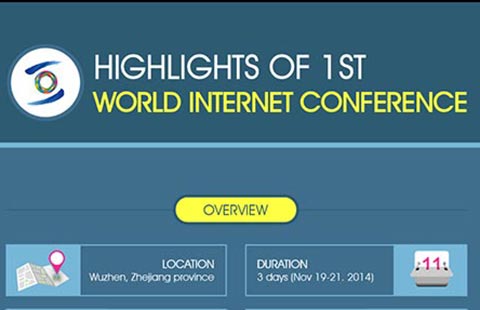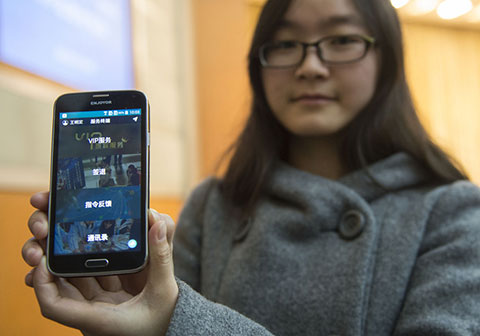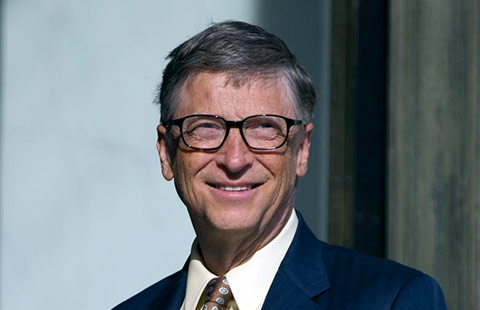An Internet power in the making
By Liu Quan (China Daily) Updated: 2015-12-16 08:07
The city of Wuzhen in East China's Zhejiang province, which is hosting the three-day second World Internet Conference from Wednesday, is the permanent venue for the event.
President Xi Jinping will deliver a speech at the opening ceremony, while global distinguished guests like Russian Prime Minister Dmitry Medvedev and Robert Kahn, who is called "father of the Internet", will attend the meeting.
Neighboring Hangzhou may be called the "capital of e-commerce in China", but Wuzhen is also home to flourishing e-businesses. Last year, the town's GDP reached 2.7 billion yuan ($418.2 million), much higher than that of similar-sized towns.
That 70 percent of Wuzhen residents are employed in the service sector, rather than the industrial sector, has helped keep the town's environment relatively clean and its landscape beautiful. It has improved the local economy as well.
Wuzhen's success shows how the Internet can make the economic transformation of a city or town or a country possible without harming the environment. By coordinating the labor forces and other social resources, Wuzhen allows its residents to offer and enjoy tailored services. Wuzhen, therefore, has shown how many jobs can be created for China's huge labor force.
But to realize that goal, China must become an Internet power, as President Xi Jinping has reiterated time and again.
China has great Internet potential. According to a China Internet Network Information Center report, the number of active Internet users in China increased by 18.9 million in the first half of this year, reaching a total of 668 million. The large number of Internet users in China has not only influenced the domestic culture, but also shown the world Chinese people's astonishing consumption capability.
This year's Singles' Day consumption carnival on Nov 11 saw the total sales on domestic e-commerce platform Tmall reach 91.2 billion yuan, four times that of Black Friday in the United States. This shows how China's large number of netizens and their consumption can make the country a major force in e-commerce. The Internet is a decentralized world, with the number of a country's netizens playing a big role in spreading its global influence. More than 20 percent of the world's Internet users are in China, which is the main reason for its incomparable influence in the virtual world.
But China is far from being an Internet power, because issues such as insufficient intellectual property rights protection and lack of innovative and creative ideas are still to be resolved.
Wang Xiaochuan, CEO of domestic Internet company Sougou, said at a recent conference that China has deficiencies when it comes to the Internet, which could make it fall behind in the global competition. The warning should be heeded, and all parties have to fulfill their duties to transform China into an Internet power.
The government needs to update its governance philosophy in the Internet age by, for example, putting greater emphasis on IPR protection and better interacting with netizens. Also, enterprises need to be more creative instead of being just imitators. In order to flourish, China's Internet enterprises must invest more energy and resources in research and development and abandon the old habit of following in the footsteps of their foreign counterparts.
Research and educational institutions, too, need new thinking because China requires a generation of new, innovative Internet talents, and it is the responsibility of the institutions to educate and cultivate more such talents.
In other words, only with the joint efforts of all sectors of society can China become an Internet power.
The author is a senior researcher in cyber security at the China Center for Information Industry Development, affiliated to the Ministry of Industry and Information Technology.
- Will small screen be tight fit for e-commerce giants?
- The rise of female billionaires in Asia
- Wal-Mart, Carrefour adapt to Web revolution
- China-funded mega port city to help generate new business in Sri Lanka: report
- Moving up value chain in China with the Internet of Things
- Online retailers look overseas for fortunes
- Toutiao app provides users with tailor-made news
- Brands shift to bricks-and-mortar stores

















